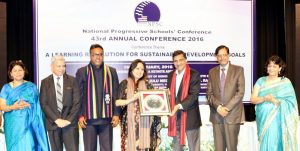New Delhi, 13 December 2016
The Founder Director of Human Rights Law Network, Dr. Colin Gonsalves asserted that the recent Supreme Court interim judgment in the Armed Forces Special Powers Act, 1958 (AFSPA) case is a “historic” one as it holds that the Army is amenable to criminal law procedures. Stating that this judgment has struck at the impunity by noting that law applies equally to all persons, Dr. Gonsalves observed that ‘jawans and army officers can be prosecuted for human rights violations’.
He was speaking at the Human Rights Day function organized by the Centre for Human Rights Studies, O.P. Jindal Global University, in New Delhi.
Dr. Gonsalves lauded the Supreme Court’s interim judgment which was arrived after considering the findings of the Justice Santosh Hegde Commission. It revealed that all six randomly selected instances out of the 1,528 total cases of alleged illegal extra-judicial executions were indeed fake encounters and the victims were not militants.
Referring to the earlier fact finding done by Justice Suresh in Manipur many years ago, who went from village to village and interviewed victims, Dr. Gonsalves stated that Irom Sharmila, as a student, heard the testimonies of victims, which had a profound impact on her as a person. Two or three months later, when a jawan was killed by militants and in retaliation many persons were shot at a market place, Irom decided to commence her historic hunger fast against the imposition of AFSPA in Manipur, he said.
Speaking on the occasion, Mr. Babloo Loitongbam from Human Rights Alert, Manipur, referred to the difficulties in dealing with justice and human rights issues in a conflict situation and the dilemmas faced by human rights defenders. Calling for transformative leadership, Mr. Babloo emphasised the need to find out that ‘what is wrong?’ instead of ‘who is wrong?’ and focus on what can be done together to address this question in conflict situations. Focussing on who is the problem and eliminating that person will not resolve the issue, he said. Mr. Babloo emphasised that the struggle of human rights groups in Manipur must not be viewed in a binary manner as ‘for India or against India’ but humanism should form the basis for finding a solution. Organising victims and asserting their rights is a part of this humanism, he added.
Mr. Babloo highlighted the contribution of students in conflict resolution and appreciated the role played by student interns from the Jindal Global Law School whose research and documentation efforts have contributed to the data verification process pursuant to the Supreme Court’s interim judgment.
The Centre for Human Rights Studies, O.P. Jindal Global University, at the function, honoured Mr. Babloo Loitongbam who is a noted human rights crusader from North-East India. Mr. Babloo through his organization, Human Rights Alert, has been at the forefront of promoting justice, rule of law and peace in Manipur for over two decades.
In felicitating Mr. Babloo Loitongbam, Professor Raj Kumar, Vice Chancellor, O.P. Jindal Global University, remarked, “it is not an award but a recognition of his contribution for steadfastly adhering to the principles and values that shaped the evolution of human rights and working under extreme adverse circumstances that goes beyond any individual”.
JGU also lauded and honoured the effort of Extra–judicial Execution Victims’ Families Association, Manipur (EEVFAM). EEVFAM is a unique organization, perhaps the only one in the world which constitutes mainly of young widows of men killed in alleged illegal extra-judicial executions. EEVFAM has gained appreciation for their dedicated work in documenting and presenting a strong case in front of the Supreme Court of India regarding the instances of alleged illegal extra-judicial killings in Manipur and highlighting the plight and impact of such killings on the entire Manipuri society.
At the function, JGU also launched the JGU Human Rights Clinic. Speaking on the occasion, Prof. (Dr.) Y.S.R. Murthy, Executive Director, Centre for Human Rights Studies, observed that this Clinic is an initiative at the micro level to reach out to the prisons, juvenile homes and other institutions while exposing students to the practical realities of human rights issues on the ground. It is also an attempt to instil in students a social consciousness towards a deeper sense of human values that needs to be promoted for a more peaceful society, he said.

